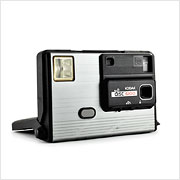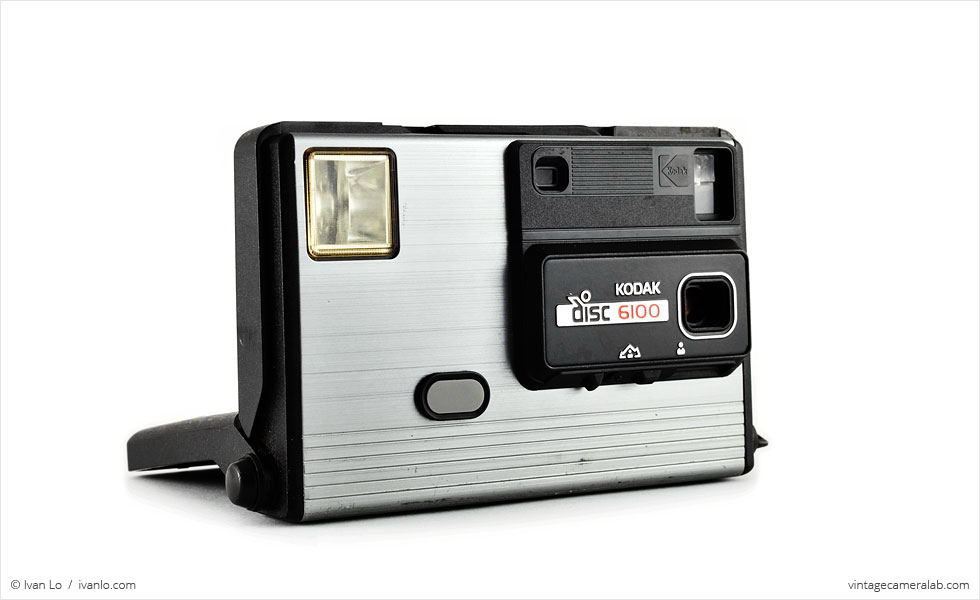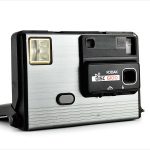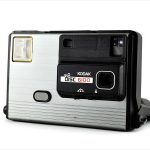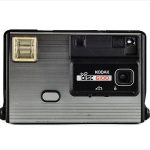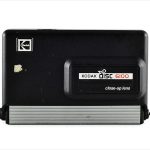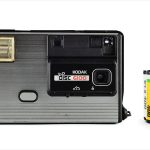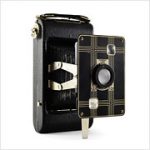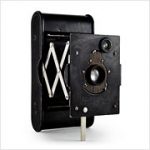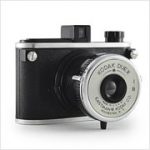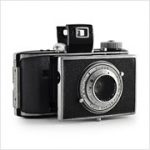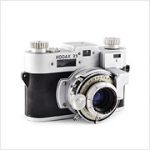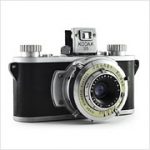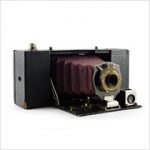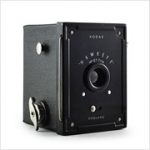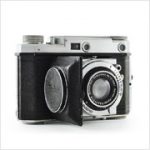Kodak Disc 6100 Specifications
| Manufacturer: | Eastman Kodak Company |
| Origin: | USA |
| Made in: | Rochester, NY, USA |
| Introduced: | 1984 |
| Type: | Subminiature, Viewfinder |
| Format: | Disc Film |
| Dimensions: | 12.4 x 8.1 x 3.2 cm |
Kodak Disc 6100 Overview
The Kodak Disc 6100 is a relatively high-end camera produced during Eastman Kodak’s foray into what they expected to be a revolutionary new product: disc film. Unlike the many different formats of the past, disc film was, as its name suggests, contained within a plastic diskette that users could easily load into their cameras. Within the cartridge was a circular piece of film upon which a total of 15 photographs could be exposed. Despite the supposed convenience and ease of use, disc film was a complete flop. Although the tiny negatives contained a fair amount of detail, graininess and lackluster image quality ultimately forced Kodak to quietly kill off the doomed format.
The 6100 has a simple 12.5mm (roughly 40mm equivalent) f/2.8 lens with two preset focus zones: 0.5-1.2 meters and 1.2 meters to infinity that can be selected by moving the switch underneath the lens. Exposure is automatically controlled and the built-in flash will fire when deemed necessary.
As detailed in my about page, I rescued this Kodak Disc 6100 from the scrap heap by basically rooting through a local photographer’s garbage pile as he cleaned out his studio. This then sparked my interest in older cameras which, through the years, violently mutated into the collection you see archived on this very website. I’ve since acquired a few more disc cameras as well as an unopened package of disc film which I believe expired in 1988. Unfortunately, I don’t think anyone processes disc film anymore (and if they do, it’s probably not cheap) so I’ll probably never get around to shooting any.
Find your very own Kodak Disc 6100 on eBay.
McKeown, James M. and Joan C. McKeown’s Price Guide to Antique and Classic Cameras, 2001-2002. (Grantsburg, WI, USA: Centennial Photo Service, 2001), p 337.
